From Classrooms to Communities: How Reflective Lesson Study is Shaping Competency Based Curriculum (CBC) in Uganda
Background
Uganda’s Secondary Science and Mathematics Teachers’ (SESEMAT) Programme strengthens STEM teaching through science fairs, INSETs, support supervision, and school-based CPDs, reaching 28 regions including Wakiso–Kalangala. With the Competency-Based Curriculum (CBC) reshaping education, many teachers face challenges in curriculum interpretation, lesson planning, project work, assessment, and managing large classes. Research shows that Continuous Professional Development (CPD) is key to addressing these gaps, with sustainable growth built on professional learning communities, mentorship, and reflective practice (Njiru & Odundo, 2023). One of the most transformative approaches is Reflective Lesson Study, a model that empowers teachers to collaboratively analyze lessons, refine pedagogy, and innovate solutions for CBC classrooms (Uştuk & De Costa, 2023). In response, SESEMAT has embraced Reflective Lesson Study as a cornerstone of its CPD support.
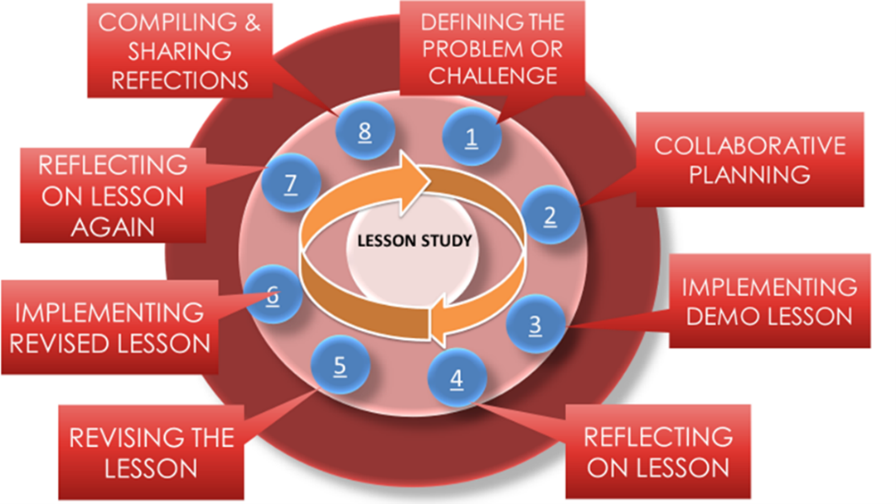
Reflective Lesson Study cycle
Strengthening STEM Teaching Through Problem-Based Learning
A total of 487 teachers from the Wakiso–Kalangala SESEMAT region attended this year’s training under the theme Enhancing the Linkage Between Teaching, Learning and Assessment in the Competency-Based Curriculum (CBC). Each subject area worked with a problem statement—none limited to a single discipline, but instead integrating concepts to clearly highlight STEM connections.
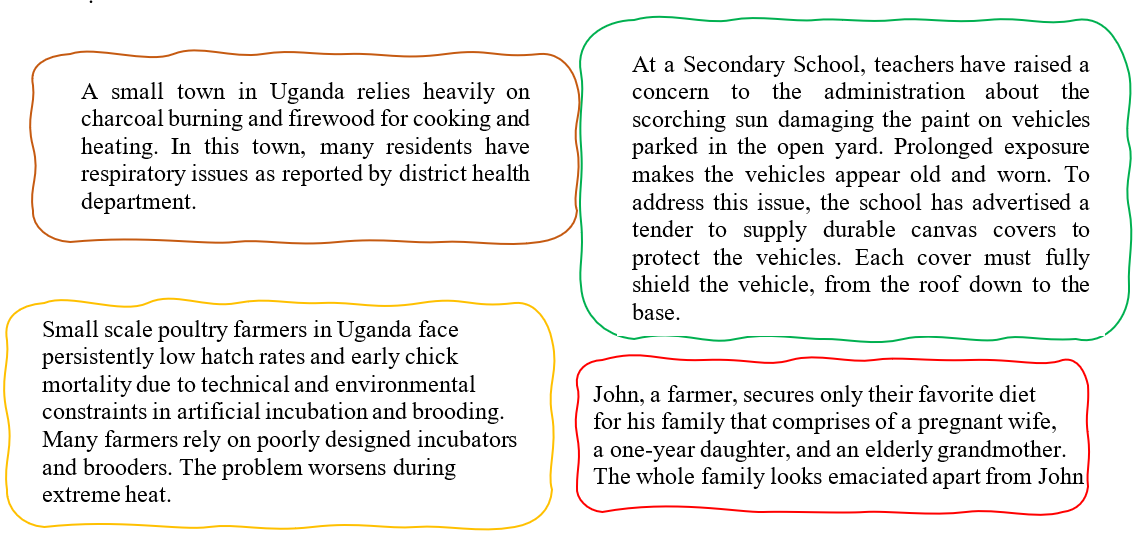
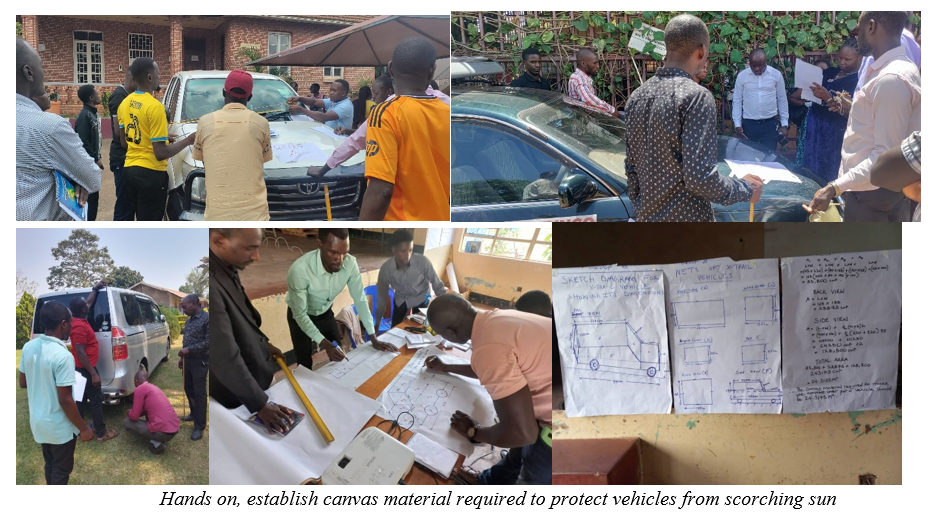
Teacher voices

Many lessons emerged from the INSET, prompting the Wakiso–Kalangala SESEMAT region to adopt Reflective Lesson Study as a sustainable way of helping teachers apply problem-based learning to build learners’ competencies.
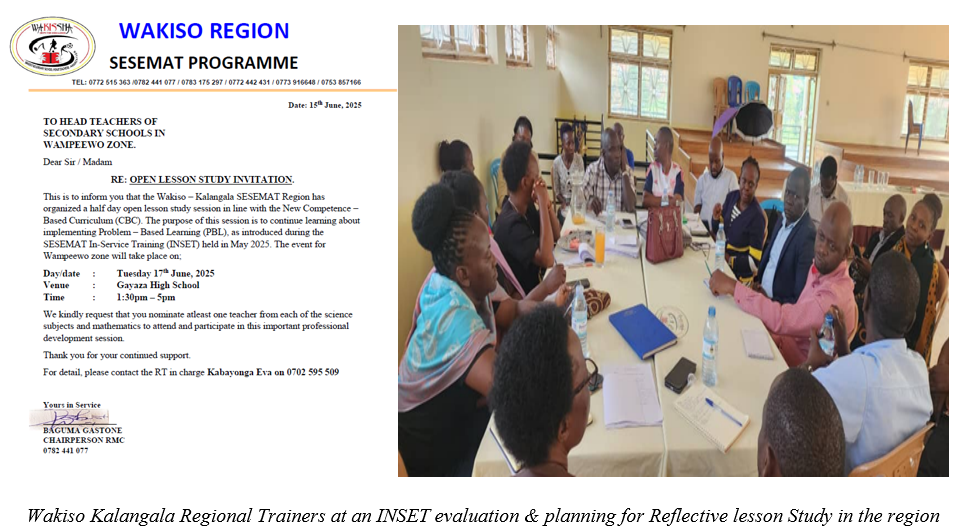
To lead by example, the Regional Trainers (RTs) initiated open lesson study within clusters, bringing together teachers from neighboring schools to collaboratively plan lessons.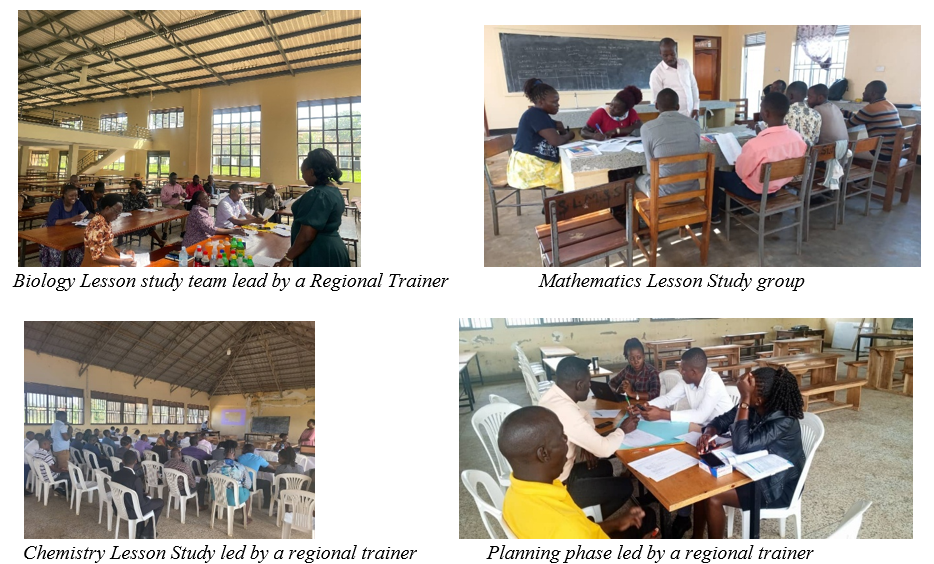
Open Lessons, Open Minds: Transforming Teaching through Reflection
These lessons, facilitated by the Regional Trainers (RTs), not only modeled innovative approaches but also supported teachers who had missed the INSETs, while reinforcing practice for those who had attended. Reflective Lesson Study thus became a powerful bridge between training and classroom application—transforming professional development into an ongoing, school-based practice rather than a one-off event.
With support from the Regional Management Committee (RMC), RTs extended this work through open lesson study sessions across different zones. Hosted by selected schools, these sessions created collaborative spaces where science and mathematics teachers strengthened their use of Problem-Based Learning (PBL) and integrated Information and Communication Technology (ICT) into the Competency-Based Curriculum (CBC).
In each session, demo-teachers delivered lessons while colleagues observed. Most importantly, teachers recognized that these approaches directly translate into better learning outcomes. Learners exposed to PBL and reflective teaching are more engaged, more creative, and better equipped to solve real-life problems—the very heart of Uganda’s CBC.
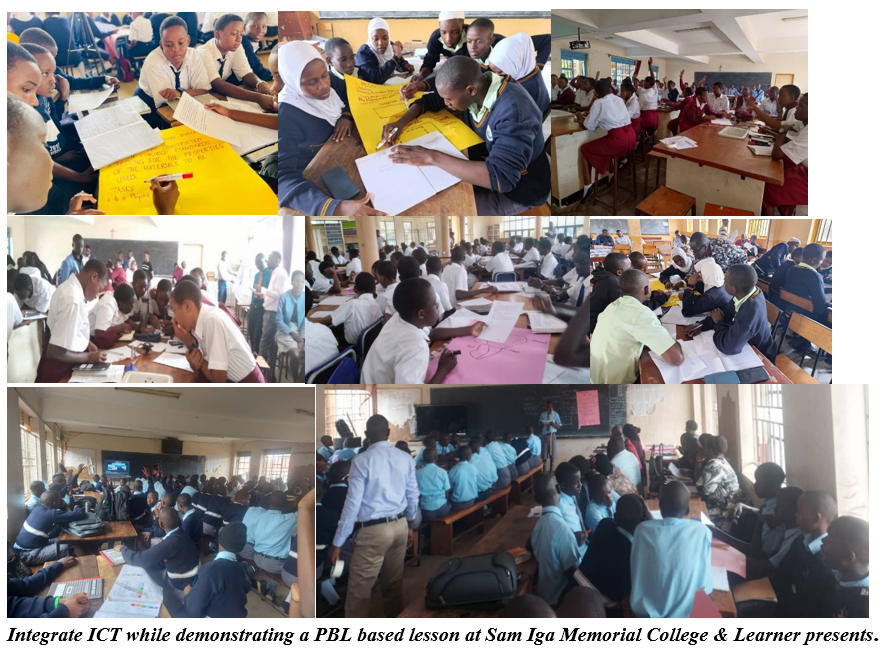
Post Lesson Discussion
Afterwards, participants engaged in structured reflection—celebrating successes, identifying gaps, and proposing improvements.
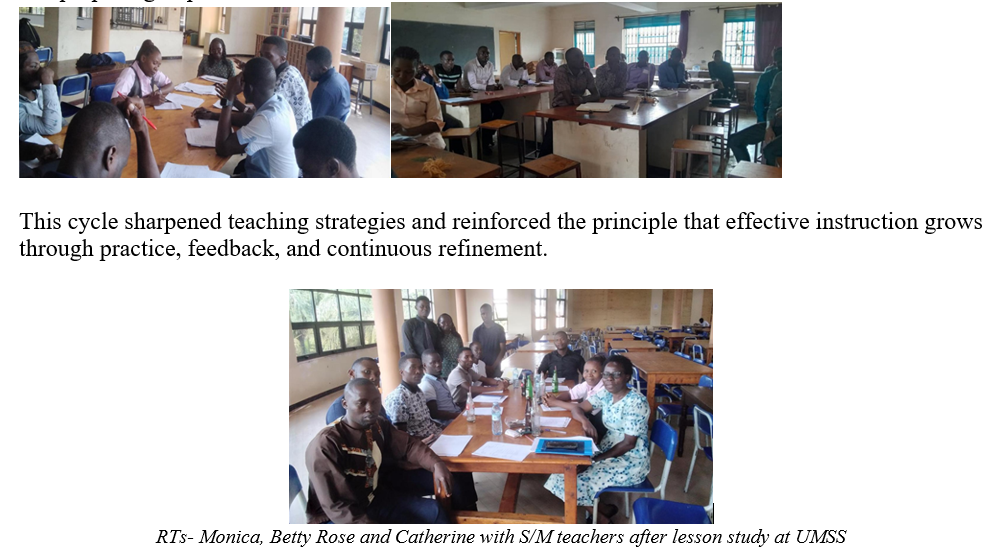
Voices from Teachers and Learners
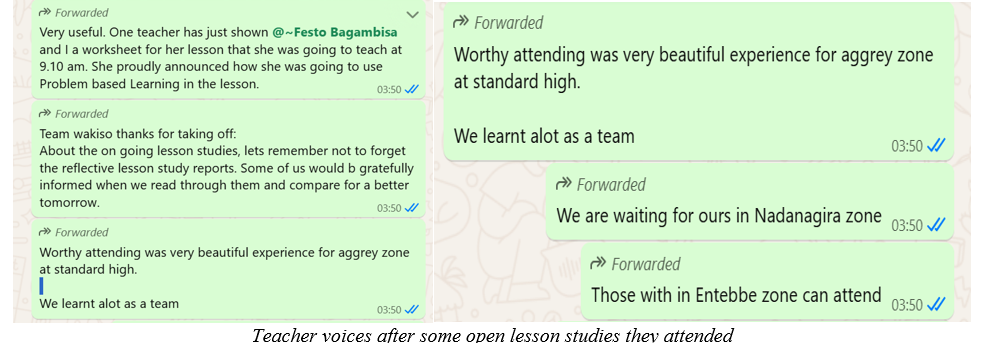
Many teachers expressed deep appreciation for the open lesson study sessions, noting how valuable it was to observe practical strategies in action. They requested that such activities be held more regularly and that host schools open doors to more visiting teachers. Participants were further
encouraged to replicate the improved lessons in their own schools, invite colleagues to observe, and reflect together as part of a culture of continuous professional growth.
Equally, the students who attended the demonstration lessons were enthusiastic. They described the sessions as exciting and engaging, and many requested that such approaches be used more often affirming that lesson study not only strengthens teachers but also inspires learners.
A Deputy Headteacher in charge of Academics at Sam Iga Memorial College continues to draw inspiration from the demonstration lesson he observed, often citing it as a benchmark for effective teaching practice. Recognizing its transformative impact, he has already requested that a similar arrangement be extended to Arts teachers in the third term of 2025. This speaks volumes about the ripple effect of such initiatives— “one good turn deserves another”—and underscores how powerful, well-executed professional development can ignite a culture of excellence that transcends subject boundaries.
Taking Reflective Lesson Study to the Islands: The Kalangala Experience
Kalangala District, located on the Ssese Islands in Lake Victoria, is one of Uganda’s most unique and geographically isolated regions. With only five secondary schools, access to quality education remains a challenge, and teachers often face limited opportunities for professional development. Yet, it is in such contexts that transformative training models are most needed.
As part of an outreach programme, National Trainers (NTs) and Regional Trainers (RTs) from Wakiso travelled to Kalangala for a three-day training supported by the Regional Management Committee (RMC). The model used was Reflective Lesson Study, which teachers quickly embraced as both practical and empowering. They acknowledged that the training not only enhanced their professional capacity but also directly benefited the learners and communities they serve.

Teachers expressed particular gratitude for how lesson study illuminated the use of Problem-Based Learning (PBL) in classroom practice. One teacher reflected, “Through attending reflective lesson study, I have learnt that when an enabling environment is in place, learners are able to think creatively and come up with solutions to problems in their communities.” Indeed, PBL shifts learners from rote memorization to active problem solvers—young people capable of applying knowledge creatively to address real-life challenges. In Kalangala, this approach is more than pedagogy; it is a lifeline for nurturing innovation and resilience in island communities.
